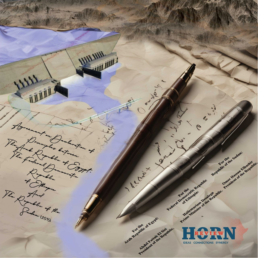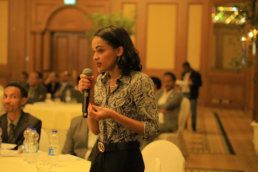
The Nile, the longest river in the world, passes through eleven countries; distinctly shaping each of their economies, political, and social lives. The Blue Nile, known to the Ethiopians as Abbay, one of the major tributaries of the Nile has been at the center of international attention following Ethiopia`s commencement of the construction of a mega dam known as the Grand Ethiopian Renaissance Dam (GERD) in 2010. The GRED is intended to harness the country’s immense hydroelectric potential to bring electricity to more than half of its destitute population living without access to electricity and all associated services and infrastructure. Since the inauguration of the project, Ethiopia, the dam owner along with the two lower riparian countries Egypt and Sudan, has been in a negotiation marathon without an end in sight. As the Dam is under construction on a transboundary river, negotiating with the two lower riparian states on how to fill it and operate it was needed.
Egypt perceives the project as a “security threat” in that it challenges its self-claimed “historical right” over the Nile waters. Though the basis for this “historical right” is flawed and unrecognized by Ethiopia and the rest of the upstream riparian states of the Nile, it is evident that GERD challenges the existing status quo in the use of the Nile Waters.
Sudan’s position, on the other hand, seems ever-evolving with its changing leadership.
Sudan’s position, on the other hand, seems ever-evolving with its changing leadership. Whilst initially favorable to the economic and cooperative prospects the dam brings, Sudan has, as of late following the revolution in the country in 2019, aligned with the Egyptian position. Understanding their approach was against their self-interest, Sudan returned to its initial approach: cooperating with Ethiopia.
The signing of the Declaration of Principles on the Grand Ethiopian Dam Project (GERDP) in March 2015 was seen as a significant milestone toward reaching a shared understanding not only on the dam but also on the Nile. The agreement outlines the core principles that should govern the three riparian states. The 2015 DoP agreement, which stipulates that “The three Countries shall utilize their shared resources in their respective territories in an equitable and reasonable manner” (Article 4) stands in stark contrast with Egypt’s assertions of “historical right.” This historical right, with colonial roots in the early 20th century, entitles Egypt to 55.5 BCM of the Nile waters, 18.5 BCM for Sudan, and leaving the remaining more than 10 BCM of water for evaporation. This entitlement is further entrenched in Article 44 of the Egyptian constitution which, not only disregards the natural rights and interests of all upstream states it inexorably securitizes an otherwise cooperative shared resource.
“The “historical right” argument, often evoked by Egyptian politicians, effectively leaves no room for a “dialogue of equals.” Rather, it establishes Egypt as the sole and proprietary authority over the Nile and all future projects on the Nile.
The “historical right” argument, often evoked by Egyptian politicians, effectively leaves no room for a “dialogue of equals.” Rather, it establishes Egypt as the sole and proprietary authority over the Nile and all future projects on the Nile. This applies not only to Ethiopia’s GERD project but also to all other riparian states, setting a dangerous monopolistic precedent over the Nile. Despite the promising provisions on “equitable and reasonable use” forwarded by the agreement, the parties are yet to agree on the guidelines and rules on the GERD, i.e. a non-consumptive project. So, what are the sticking points that have stalled an agreement by over a decade?
Current talks:
The GERD negotiations have passed through several iterations under several facilitators. The latest talks (September, 23) which took place in Addis Ababa, were initiated by Prime Minister Abiy Ahmed during his Cairo visit on the 12th and 13th of July. The Egyptian and Ethiopian leaders jointly set an ambitious plan to produce the “Guidelines and Rules on the Annual Filling and Operation of the Dam” within four months.
The first meeting of the current process, which took place in Cairo in late August, concluded without progress.
According to sources close to the negotiations, members of the Sudanese delegation expressed their frustrations that the Cairo process created a divergence rather than a convergence of interests, which would have inched the parties closer to an agreement.
According to the same source, the recent divergence of positions was due to the Egyptian delegation’s introduction of “new texts and concepts” which are not only foreign to the current process but contrary to the 2015 trilateral Declaration of Principles Agreement.
The Egyptian delegation is reported to have forwarded new terms and concepts that would be seen as outside of the scope of the framework established in 2015.
Sources who attended the Addis-Ababa talks cite the same problem for yet another inconclusive meeting. The Egyptian delegation is reported to have forwarded new terms and concepts that would be seen as outside of the scope of the framework established in 2015. Given that the aforementioned DoP agreement is the only international legal document governing the relationship of the three countries as it relates to the Dam, it is highly unlikely that the three nations can ever reach an agreement, let alone within the 4-month timeframe the leaders have ambitiously set forth.
Is there a shared understanding of the basics?
As the talks currently stand, no. Sources say that the Ethiopian and Sudanese delegations continue to uphold the 2015 Declaration of Principles agreement as a live document that should encapsulate subsequent GERD negotiations. The challenges in the current round of negotiation arise distinctly from Egypt’s refusal to stay within the scope of the 2015 agreement. The Egyptian delegation, by insisting on new terms and conditions, seems intent on stepping outside the framework of the 2015 agreement, further stalling the prospects for a possible agreement.
The 2015 Declaration of Principles document, as it is the only agreement signed between the three riparian states, should serve as a guiding document; at the very least, the parties must endeavor to uphold the principles therein. However, should Egypt continue to undercut its the 2015 agreement, is there another such document that can serve as a basis for another agreement? Sources have disclosed that the 2015 DoP document was not made public- to the amazement of both Sudanese and Ethiopian delegations- Egypt’s delegates insisted on making the document public. It is now the same document that Egypt is almost opposing.
The Second position, as an extension of the first, is that the GERD reservoir must serve as Egypt’s secondary reservoir should drought affect the region.
Though the Sudanese presence was noticeably understated during the current rounds, as it stands, there are two primary indicators of the Egyptian position during both the Cairo and Addis Ababa talks. The first is a complete rejection of Ethiopia’s equal “ownership” of the Nile and inalienable rights to use its natural resources. The Second position, as an extension of the first, is that the GERD reservoir must serve as Egypt’s secondary reservoir should drought affect the region. The Ethiopian delegation stands starkly opposed to these positions reflected by the Egyptian delegation as it reportedly steered the discussion toward an Egyptian monopoly.
In the case of drought, the Ethiopian position is that a region-wide drought-mitigation mechanism should be put in place. According to international law and customs, there is no other nation with a transboundary river that has committed to singularly availing its water reserves for another riparian state. The Ethiopian delegation, as it has during past talks, insists that regional-level solutions must be formulated for regional-level disasters such as drought.
What is next?
As a process initiated and overseen by the negotiating parties themselves, this current progress encouraged optimism. However, in addition to past issues of contention like information sharing, drought mitigation, and filling timeline- this process is further scattered in focus due to the shift away from the 2015 DoP. This pursuit of arriving at a shared understanding is made evermore elusive due to megaphone diplomacy, oft deployed by Egypt, for political expediency. The progress, or lack thereof, made in the Addis Ababa talks also casts doubt on the prospects for a progressive outcome in the upcoming October 23-24 talks to be held in Cairo.
Bethlehem is the Director and Editor-in-Chief at Horn Review. As co-founder, she oversees research and training programs, as well as the editorial process at Horn Review.
